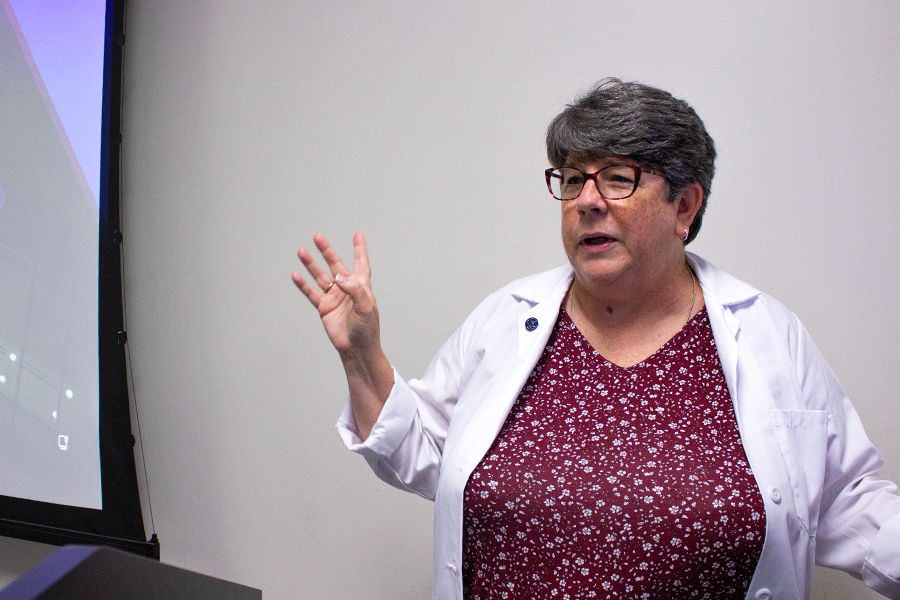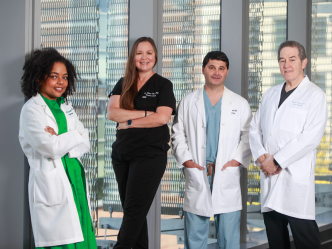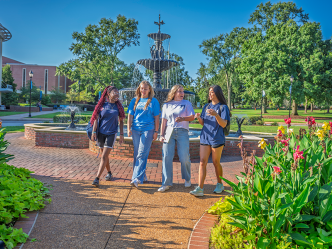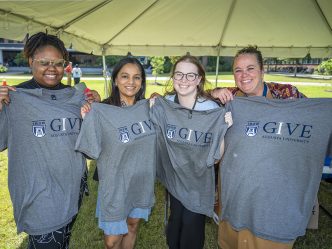Between the tragedy surrounding pro-golfer Grayson Murray and The Wall Street Journal’s recent article, “The Loneliness of the American Worker,” the topic of mental health is once again at the forefront of the public consciousness.
The challenge is keeping it there.
“The more we increase awareness, the more we create the possibility of coworkers looking out for each other. This is particularly advantageous because the nature of a lot of mental health crises is that people isolate themselves and may not be aware that they need help,” said Caroline McKinnon, PhD, an associate professor in Augusta University College of Nursing doctor of nursing practice department.
A two-time PGA Tour winner, Murray died by suicide the morning of May 25, having withdrawn from the Charles Schwab Challenge the day before due to “illness.” He was 30 years old.
As family and friends continue to mourn his passing, many have remembered Murray as being very open about his struggles with alcohol and mental health.
In his Visit Knoxville Open victory speech, golfer Harry Higgs spoke on Murray’s death and said, “Everybody here could be a difference, the difference, brighten up somebody’s day. It could mean the world.”
McKinnon said athletes and celebrities speaking out in this way “combats the stigma that might keep people from seeking care.”
The pressure to perform can be overwhelming for athletes, especially those who compete in an individual sport. In their version of a workplace, there are fewer people whom they can confide in and who can identify if they are in crisis.
Just days after Murray’s passing, 15-time LGPA winner Lexi Thompson announced her retirement. She was the youngest LGPA winner at 16, and now, at 29 years old, she cited mental health as one of the contributing factors to her decision.
Fox Sports quoted Thompson saying, “In golf, you lose more than you win, so it’s an ongoing battle to continue to put yourself out there in front of the cameras and continuing to work hard and maybe not seeing the results you want and getting criticized for it.”
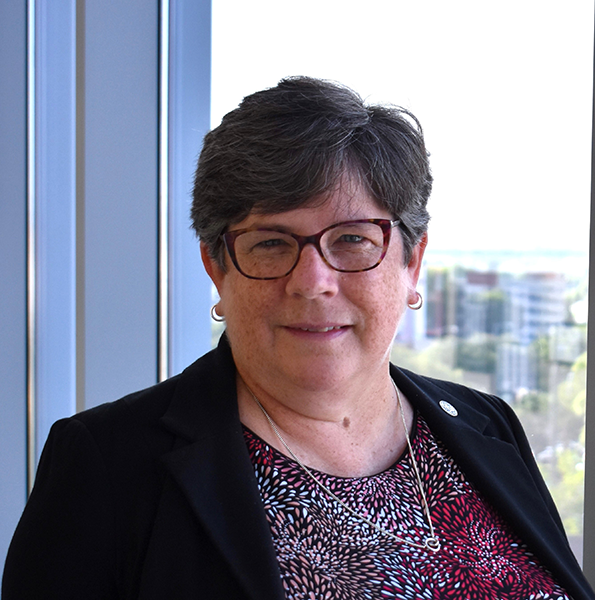
According to McKinnon, who serves as the psychiatric mental health nurse practitioner program coordinator and has decades of experience in mental health nursing settings, the additional national focus on mental health should urge all to continue conversations around mental health.
“The connection between mental health in the workplace and the mental health of athletes is the fact this coverage is improving the awareness that mental health impacts people in all occupations,” said McKinnon.
The Wall Street Journal ‘s article by Te-Ping Chen details that, while people are digitally connected, many Americans feel isolated. According to Chen’s article, 40% of remote workers said they go days without leaving the house while in-office workers are in virtual meetings for almost a quarter of their day.
Chen continued the article writing the percentage of people who say they know their coworkers on a personal level is down 11% in the last five years. The social aspects of work have diminished, and many Americans are feeling the effects of that loneliness. A surprising revelation in the article stated that meetings make workers feel lonelier, with a correlation between those who describe themselves as lonely and having heavy meeting loads.
The results indicate a decline in workplace mental health, but what is the cause? McKinnon posits that it’s a combination of many things.
“One part, of course, being the social interactions we’ve had to create because of the pandemic and the stress it generated for people. But another factor is technology. Our use of technology is influencing neurodevelopment and neurobiological stability. The more time we spend online, the more our brains change,” McKinnon said.
A benefit of this article is the increased awareness. It is very possible these problems have been an underlying issue, but now that the stigmas are breaking down, we are moving away from blame and opening the conversation.
“It may create the perception that the problem is worse, but really, we are just acknowledging it finally,” said McKinnon.
For the Georgia Public Health Association Annual Meeting earlier this year, Augusta researchers presented at Georgia Southern University. Neil J. MacKinnon, PhD, professor of Health Policy for AU’s School of Public Health; Zach Hoffman, a research associate in the Institute of Public and Preventive Health; and Preshit Ambade, a postdoctoral research fellow created a workplace mental health and well-being survey called the “Augusta Scale.”
Augusta University offers Question Persuade Refer (QPR) training, and McKinnon, who is an instructor for the class, recommends that all faculty, staff and students take it. Suicide prevention training is meant to help the average person recognize when someone might be having a crisis, and then knowing what the first steps might be to help.
“It is a basic set of skills, just like learning the signs of a heart attack or CPR training,” McKinnon said. “In both situations, I’m going to ask certain questions to assess the level of emergency, and then get the individual the specific help they need. Comprehensive suicide prevention needs to take everything into consideration, but you can start by training everybody.”
The future goal would be to train maintenance staff that go into dorms to assess safety and to train AU police officers on how to intervene in a crisis without escalation.
The QPR institute has online training for different types of individuals and professionals with specific needs. McKinnon offered there is even a QPR for athletes.
“Some people are scared to get involved in these situations, but QPR teaches you how to handle it so you are prepared. A mental health crisis is easier to hide than a physical emergency, but the majority of people in suicide crisis are going to tell someone they know before telling a stranger,” McKinnon said.
“You never know who is going to be a bystander or a witness, and you don’t have to be a health professional to start the process of getting someone into care. This training can help with some of the language and stigmas surrounding mental health.”
Augusta University offers 24/7 emergency counseling assistance to all students, faculty and staff at 833-910-3364. If you or someone you know is in a crisis, please call or text 988 or visit 988lifeline.org for free and confidential support. The National Council for Mental Wellbeing has a list of mental health resources available on their website.
 Augusta University
Augusta University
